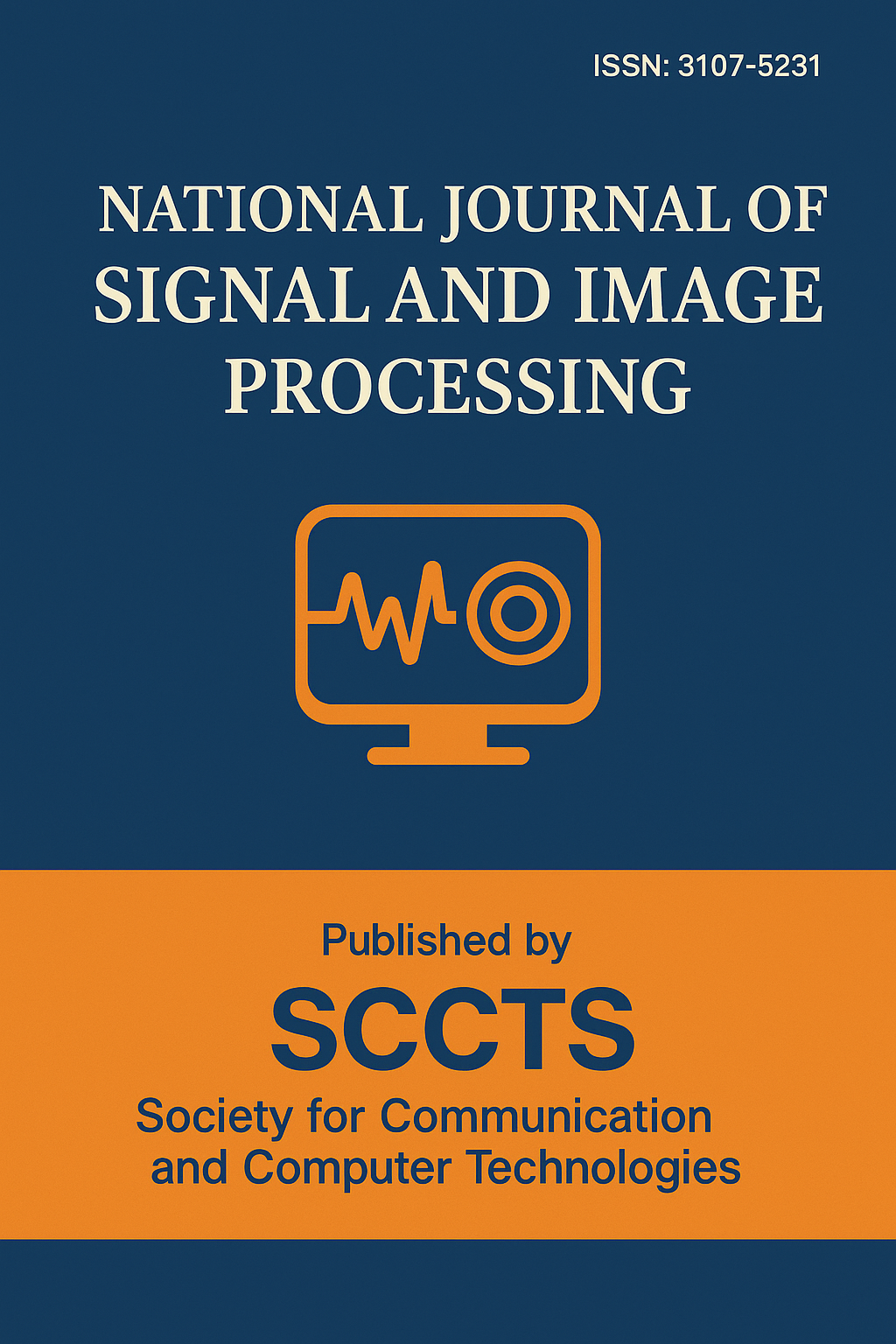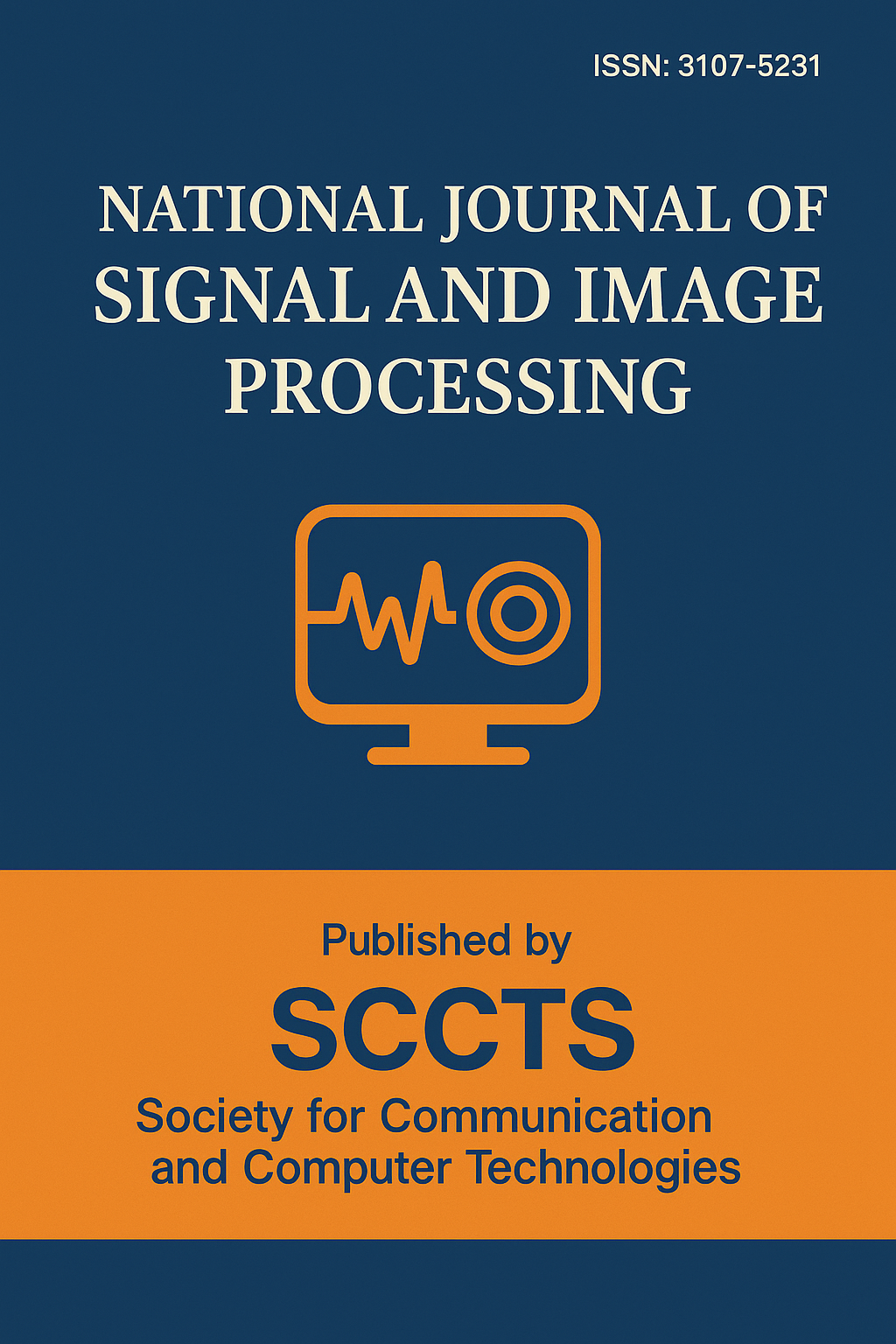AI-Augmented Adaptive Filtering for Real-Time Noise Suppression and Feature Enhancement in Biomedical Signals
DOI:
https://doi.org/10.17051/NJSIP/01.04.01Keywords:
Biomedical Signal Processing, Adaptive Filtering, AI-Augmented DSP, Real-Time Signal Enhancement, Noise Suppression, 1D Convolutional Neural Networks, ECG Denoising, Edge AI, Feature Preservation, Wearable Health Monitoring.Abstract
Electrocardiograms (ECG), electroencephalograms (EEG), and electromyograms (EMG) are examples of biomedical signals that are frequently compromised by motion artifacts, the power-line interference, and physiological noise interferences, thus, limiting the accuracy of their analysis. Traditional adaptive filters that are in use such as the Least Mean Squares (LMS) filter work reasonably well in stationary situations but fail in non-stationary ones found in reality. The proposed paper introduces a new concept of AI-enhanced adaptive filtering framework which integrates conventional adaptive filtering algorithm with data-driven noise prediction model to improve real-time signal quality. The proposed technique incorporates the 1D CNN lightweight architecture with the classic LMS filter, making it possible to adjust filter weighting to contextual patterns of signals, in order to better detect and neutralize time-varying noise by the system. This architecture is justified using some benchmark biomedical datasets such as the MIT-BIH Arrhythmia and PhysioNet EEG Motor Movement set. Quantitative tests based on measures Signal-to-Noise Ratio (SNR), Root Mean Square Error (RMSE) and Mean Absolute Percentage Error (MAPE) demonstrate the high effectiveness of the suggested method in comparison with standalone LMS, RLS, and CNN-based filters. Notably, the design reaches real-time on embedded processors and would support wearable and edge-AI healthcare. The obtained results indicate that both noise suppression and preservation of diagnostic features improve significantly, providing a basis to further develop intelligent biomedical signal processing systems.






